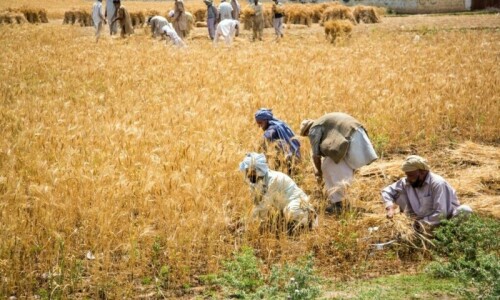Islamabad, May 23, 2025: In a landmark move aimed at increasing provincial revenue, the Sindh government has rolled out a super tax on agricultural income under the freshly enacted Sindh Agricultural Income Tax Act 2025.
Effective from January 1, 2025, this tax reform is designed to target the province’s top agricultural earners—those raking in more than Rs. 150 million annually—while shielding smaller farmers from the financial burden.
The Sindh Revenue Board (SRB) has formally unveiled a progressive super tax structure for high-income agricultural producers, marking a significant shift in the province’s taxation landscape. The newly implemented policy exempts all agricultural entities earning below Rs. 150 million per year, ensuring that only large-scale agribusinesses shoulder the added tax load.
Read More: Budget 2025: No Pay or Pension Raise Likely in Federal Budget Without Spending Cuts
Here’s how the new agricultural income super tax breaks down:
- Rs. 150–200 million: 1%
- Rs. 200–250 million: 2%
- Rs. 250–300 million: 3%
- Rs. 300–350 million: 4%
- Rs. 350–400 million: 6%
- Rs. 400–500 million: 8%
- Over Rs. 500 million: 10%
This step is part of the province’s broader strategy to enhance fiscal sustainability and reduce dependence on federal transfers. An official from the SRB stated, “This policy ensures that those with substantial agricultural incomes participate equitably in provincial development.”
Read More: SBP Approves UBL Share Split to Boost Investor Access
While agricultural income remains untaxed in several other provinces, Sindh’s move could set a precedent for broader reform in Pakistan’s rural tax policy. Experts believe this could help formalize agricultural revenues and bring long-term economic benefits.









